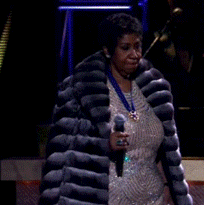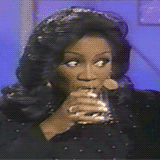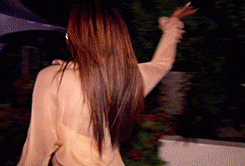HEY
It’s been a while, but I’m back in the habit!

Well at least for this week. Ha!
This time I’d like to talk about kids. I love kids. I think they’re hilarious. I can’t wait to have my own some day.
While entertaining the thought I can’t escape the temptation of wondering what they will be like, and furthermore what role I will have in forming that being. To most the answer seems pretty straightforward: be a parent. And that’s simple enough…but what does it mean? Aside from providing basic essentials that children need in order to effectively make it to adulthood like food, clothing, education and healthcare…what else needs to be covered? For me, in addition to the basics, it’s very important that my children learn early on that they have a responsibility to not only contribute positively to society, but to also work diligently to foster a social environment of tolerance and acceptance of those who may be different from them, be it their race, religion, sexual orientation, TV show fandom…Beyhive, Monsters or the Navy…(they don’t have to tolerate Iggy Azalea, though…allowances)…whatever. So while considering this I thought of my experience growing up as well as some ideas that I would like to employ and this is what I came up with. Hopefully…you new parents, or parents to be…or heck…veteran parents and extended family will take some of this into consideration as we raise up a generation of kind and tolerant human beings!
1. Educate them.

This sounds pretty obvious, right? Teaching the kids what to do and how to get along? That’s all fine and dandy, but considering the fact that some of the social issues we face today are reminiscent of, or are the exact same issues from our past, modern society is a bit unsettling. All of the educational disciplines are important. It is imperative that future generations know how to calculate, read and the like; however it is just as, if not more so important that they learn and internalize their history. American history courses taught on the primary and secondary level, at least due to my experience (former social science education major) and depending on the enthusiasm of the teacher, are generally lackluster and leave a lot to be desired. “Teaching to the test” and watered down (biased?) curricula present a mamby pamby narrative of what really happened in our past and it’s obvious when young adults enter conversations that require a historical knowledge and they have no idea what’s going on. We can prevent this. Go beyond what your child might receive at school. Share with them age appropriate, yet well written books and films that engage them and help them remember the story of our past as you read and watch with them. Take them to museums, re-enactments (not Civil War ones, because why?) and national parks. Educate them in a way that history comes alive to them. That’s what my parents did…and look at me now. I know everything. I’m kidding. There’s actually a lot that I still don’t know, but there is a hunger that I have for the human story and it was ignited by my parents, aunts, uncles and older cousins at an early age. How do you think I ended up becoming a historian and an activist?
2. Expose them to diversity.

This is super important as it is key in developing interpersonal skills in general, but also with people who are different from us.
STORYTIME.
When I arrived at college at a predominately white institution (Auburn University, woo! War Eagle.) I quickly became good friends with two white guys, P and E. One football game day my friends and I were having a conversation and it somehow came out that P, from the midwest, had graduated high school with only one black person in his senior class…and E, also from the midwest (another state, though)? Only four or so black people in a class of almost 2,000. Furthermore neither really knew when Martin Luther King Day was, and they were both unsure of which month was designated as Black History Month.
This is problematic.
To be honest, I understand–it’s really no fault of their own OR their parents’. These particular regions of the midwest aren’t necessarily large centers of a black population. In fact it’s indicative of an even broader social issue where white people just can’t seem to get out of their own little circles. The Washington Post even wrote about how three quarters of white people don’t have any non-white friends. Don’t believe it? If you’re white, take a moment to look at your social media connections. Peruse your Facebook friends and tell me what you see. Is there any pepper in the salt? Any Milk Duds in the bowl of Mentos? Do you actually KNOW the Milk Duds you do follow? Honestly, it’s understandable especially when you take into account that white people are in the majority in this country…but what do you do to remedy the gap in understanding there? If I were the fairy godfather of my two friends growing up I would have urged them to get out of their comfort zone and engage people that don’t look like them. In fact, I took on this role while in college. I took E to my black Baptist church in my hometown and he joined P and I in watching films like Dreamgirls and The Color Purple on what became known as “Culture Night” at my apartment. (I bet you they know when Black History Month is now. P has even been recommending books on white privilege to ME. HA! Look at God.)
White parents, it’s important to raise modern children in an increasingly globalized civilization to be accustomed to congenially interacting with people of black and brown skin. How do you do this at an early age? Arrange playdates which the black and brown kids at school. Invite them to your house and enthusiastically go to theirs when invited. Take them to cultural events like a Sweet Honey in the Rock show (seriously, click the links). Visit the AME (African Methodist Episcopal) church across the street from your Presbyterian church. Show them films that feature people of color in a positive role (if you can find one, because dang). Take them to an Indian or Thai restaurant. Impart on them that it’s important to experience and observe but never exploit what they see. Again this is something that my parents did for me and my siblings and we’re better for it. I’ll never forget my aunt and mother taking me and my sister to see the Alvin Ailey American Dance Theatre in Mobile at the young age of 7 or 8. I remember the captivating visuals to this day and singing the refrain of “Rocka My Soul” well after the show was over. That moment stuck with me so that now, nearly 20 years later I’ll be seeing Ailey perform this month for the fourth consecutive year. See how that works?
Also this goes for black and brown parents as well. We must avoid isolating our children from an honest understanding of their white peers at an early age. Hiking is not for white people. Country, classical and rock music are not “white music.” There is no such thing as “talking white.” Let’s not shortchange our youth by placing a negative bias and labeling things as “white” just because they are outside our culture. This is basically ideological segregation and there’s no place for that in anyone’s mind, let alone the mind of a child of today or the future. Now go invite little Brad and his parents over for chitlins and cornbread. Careful with the hot sauce. Substitute my chitlins for chicken, though, thanks.
3. Talk to them.



“And if old people would talk to
Young people, it would make us all
Better people all around, yes, it would.”
Again, this seems pretty straightforward…but honestly are we having the necessary conversations with youth about our differences as people and how to embrace those differences rather than use them as a means of division? When news of Michael Brown’s murder hit the air how did we talk about it with our children? I know black parents probably repeated the usual speech to their children explaining how racism is a nasty reality and how some things just aren’t fair. As a 24-year-old man-child of black parents I still get this speech to this day. I wonder how many of my white friends received the same speech or one similar to it explaining what’s really happening. I wonder how many white parents are actively chastising their children for saying the n-word…even if their black friend (wrongly) told them they could say it…or because they heard Kanye and JAY Z say it. I believe that it’s important that white parents have these conversations with their children in order to help them empathize with people of color and better understand racial injustices…and avoid making John Mayer and Paula Deen mistakes.


What’s absolutely not okay is reinforcing white privilege by keeping quiet the reality of modern racial injustices and the affirmation of dated, oppressive racist social systems in your homes. In an Illinois town, regarding the Michael Brown case (this is just a coincidence), school officials banned discussion of the issue from taking place in class. I imagine some white parents being relieved with this setting a precedent of silence in the white community (unless calling Michael Brown a thug), but it’s exactly the opposite of what needs to happen. Contrary to popular belief not talking about racism, misogyny and homophobia doesn’t make any of it go away. Address it with your children head on and hold them accountable so they don’t end up transitioning into adolescence and adulthood thinking it’s okay to call people the n-word and doing this (actually happened to me about a week ago).
4. Be an example.

Last, but probably the hardest, is to simply be an example to your children. This, of course, requires vigilant self-reflection and making sure that you yourself, despite how you were raised and your personal experiences, are working to be tolerant and accepting of those people who are different from you. This makes sense, right?…that our children aren’t going to respect a lick of what we tell them or encourage them to do unless we emulate that same behavior? Even then it’s a toss up depending on the child, but at least you can sleep slightly easier at night knowing that by doing this, and all of the other aforementioned suggestions, you’re working to make sure that the next generation has one or two fewer Bull Connor’s, George Wallace’s, Christopher Columbus’s and Adolf Hitler’s.
And I’m out.
Let me know what you think. I’d love to hear your thoughts as usual!
IT FEELS GOOD TO BE BACK.










